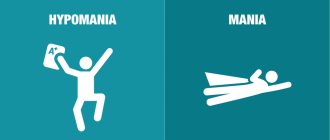Depression—the embodiment of the idea that each of us is alone within ourselves—destroys not only our connection with others, but also our ability to be at peace with ourselves. Love, although it does not prevent depression, softens the tossing of our mind and protects it from itself. Medicines and psychotherapy can restore this defense mechanism, making it easier to love and be loved, and that is precisely the point of their use.
Andrew Solomon. Midday demon. Anatomy of depression
Homo Sapiens should rather be called an emotional person (Homo Motus). Any movement of our soul and thought is colored by emotions. Emotion is a mental process that reflects the attitude towards certain phenomena of the surrounding world. When we achieve success, get something we have been striving for for a long time, contemplate the beauty of nature - we are overwhelmed with positive emotions. Naturally, the coin also has a downside: we are often offended, we do not get what we deserve, we lose someone or something - then our emotions are negative. This is sadness, sadness, melancholy. Often we simply cannot understand why we are in a good or bad mood. You woke up in the morning and realized: this day is yours, everything will work out for you, you are full of energy and do not pay attention to troubles, rejoicing in your successes. But it doesn’t happen day after day, and now you barely open your eyes, you don’t want to go anywhere and you don’t want to do anything. Even good news doesn't make you particularly happy. Life is a series of emotional states. Emotions in a normal state cannot be only good or exclusively bad. Our body is able to maintain the balance of “black and white” itself, finding positive moments during the “black streaks” in our lives, when, it would seem, everything is against us. Unfortunately, the opposite happens. You have almost everything in life that you strived for: family, prosperity, excellent education, good job, respect from colleagues, love and attention from loved ones and friends - but nothing makes you happy. You just feel globally bad. Trying to use your intellect to convince yourself that everything is actually fine ends in failure. Your loved ones cannot understand what is happening to you. An incomprehensible sadness, the blues should go away, but it doesn’t. Day after day, week after week, month after month. You haven’t achieved anything at work – that’s nonsense. House, car, bank account - what is all this for? I don't represent anything. I love my family very much, but they suffer with me, they don’t need me. I don't want to wake up in the morning because all these thoughts come back again. I can't sleep because they won't leave me. If you are more or less familiar with these experiences, then the word “depression” is not an empty phrase for you. Depression is a deviation in the normal functioning of the psyche, the main manifestation of which is an unreasonable decrease in mood, loss of the ability to have fun and enjoy life. As a medical diagnosis, depression has a long history and was already known to the great ancient physician Hippocrates, who lived two and a half thousand years ago. Classical (typical) depression is described by the so-called “depressive triad”: decreased mood, reluctance to move or do anything, slow flow of thoughts.
What is the difference between depression and just a bad mood?
It is characterized by a number of characteristics. If we turn to the International Classification of Diseases, we will see that a person with depression suffers from low mood, loss of interests and feelings of pleasure, and decreased vital energy. These are the main, basic symptoms of this condition. For a confident diagnosis, the presence of two of them is sufficient. There is also a decrease in the ability to concentrate, a decrease in self-esteem and feelings of self-confidence, and the idea of \u200b\u200bguilty of something. Views on the future are gloomy and pessimistic. Sleep is disturbed and appetite decreases. Ideas arise about the meaninglessness of life. A bad mood persists from day to day, no matter what happens around, and it is especially bad in the morning, immediately after waking up.
Prenatal and postpartum depression
All psychiatric drugs cross the placenta and reach the developing fetus. Therefore, during pregnancy, women should understand how this medication may affect the developing fetus.
Photo by Sergiu Valenaș on Unsplash
But any possible risks associated with taking medications must be weighed against the risks associated with not taking them. In some cases, depression carries greater risks than the medications used to treat the disorder.
Approximately 10% to 15% of new mothers experience postpartum depression (within three to six months after giving birth). Sleep deprivation, the dramatic changes and stresses that come with motherhood, and changes in hormones can all contribute to depression. Treatment can improve the quality of life for both the mother and her baby.
Diagnostic criteria for depressive disorder
1) a sad, gloomy, depressed mood prevails; 2) the attitude towards oneself is based on the belief in one’s inferiority, worthlessness, and low self-esteem; 3) there is a tendency towards self-criticism, self-accusation, and downplaying one’s merits; 4) pessimism and a tendency to experience feelings of guilt or regret are typical; 5) there is a predisposition to sad thoughts and search for reasons for concern; 6) there is a negative, critical or judgmental attitude towards other people. At the same time, patients are friendly, shy, ready to help, and tend to take on the main work. There is a high risk of suicide. Such a complex phenomenon as depressive disorder has several causes.
To confidently diagnose a depressive disorder, the listed symptoms or part of them must be observed for at least two weeks, but if the disorder is severe and the symptoms are severe, a shorter period is sufficient for the diagnosis. Depression varies in severity: mild, moderate and severe. If you think you now know enough to diagnose yourself without the help of a doctor, take your time. Depressive disorder can be masked by irritability, hysterical behavior, aggression, alcohol and drug use (by the way, taking psychoactive substances worsens the prognosis of treatment). Sometimes depression does not manifest itself as obvious mood disorders, but as symptoms reminiscent of diseases of the internal organs or nervous system, and then we talk about “somatized” depression. When, based on these symptoms, we have fears, or even confidence in the presence of some kind of disease, we can talk about hypochondriacal depression. The complexity and diversity of clinical manifestations of depressive disorder have led to the emergence of a number of medical terms: “atypical depression”, “autonomic depression”, “latent depression”. There is even such a term as “depression without depression.” Depression varies from person to person in the number of depressive episodes. Some people experience it only once in their lives, while others experience it more than once. Depression is diagnosed primarily clinically. The doctor simply talks with the patient, analyzes his complaints, asks additional questions and, based on the signs of depressive disorder formulated in the corresponding section of the International Classification of Diseases, makes a professional judgment. A logical question is: what prevents a person who does not have a special education from independently accessing the relevant information, for example, on Wikipedia, and deciding for himself what is happening to him, his relatives or acquaintances? Unfortunately, it doesn't work that way. In fact, depression is a rather complex diagnosis that can be confidently made by excluding a large number of mental illnesses, one of the manifestations of which may be depressive syndrome. These are, for example, some conditions from the group of schizophrenic disorders, consequences of chronic or acute mental trauma, manifestations of individual individual mental anomalies, diseases of internal organs and the nervous system. There are variants of depression, and we have already talked about them above, in which a person is not fully aware of the mood disorders he has. The context in which depression develops is also very important. Mood disorders in adolescents and young adults differ significantly in their manifestations from the same problems in older people. A separate issue is depressive disorders caused by certain physiological characteristics of the female body. It seems to us that we have presented a sufficient number of arguments indicating that the diagnosis of “depression” can only be made by a qualified psychiatrist who, based on his knowledge and clinical experience, can assess the patient’s condition in all its complexity and totality. Another and probably the most serious argument in favor of the inadmissibility of self-diagnosis and self-medication is that severe depression can pose an immediate threat to life. In such a state, a person can make a tragically wrong decision and try to take his own life. The mind refuses to realize that pain and suffering most likely have no real basis in life, but are just manifestations of a disease that will definitely pass, either on their own or as a result of treatment. Thoughts and intentions associated with suicide are not the thoughts of the person himself, but the false thoughts of his illness, which will then be remembered only as a stupid and terrible dream. Depressive disorder has a biological nature established by scientists. This is a deficiency of monoamines (serotonin, norepinephrine and dopamine) - substances that are very important for the functioning of the brain.
Symptoms of depression in men
Male depression is more difficult to identify and treat. Men suffering from this type of mental disorder simply do not turn to specialists. Signs of depression in men (depression, mood swings, weakness) are perceived more as weakness than as symptoms of a serious illness. Manifestations of depression are stubbornly hidden under the guise of fatigue, irritability or aggression.
Typical symptoms of depressive disorder in men include:
- increased susceptibility to stress;
- uncertainty when making decisions;
- problems with concentration;
- alcohol abuse (including alcohol addiction);
- moral “burnout”;
- manifestation of impulsive, aggressive and even hostile behavior;
- sexual dysfunction;
- excessive physical activity and passion for extreme sports;
- dissatisfaction with oneself and one's achievements;
- suicidal thoughts.
In parallel with these symptoms, men with depression may experience digestive problems, headaches, and worsen chronic diseases.
Treatment of depressive disorder
However, making a diagnosis is only the beginning. The main thing is to cure a person, and for this it is necessary to prescribe the correct and effective treatment that is suitable for this particular patient. Fortunately, the treatment of depressive disorders is a well-studied and developed problem. The main drugs for the treatment of depression are, as their name suggests, antidepressants. Their world is complex and diverse. There are several classifications of these drugs: by chemical structure, by the mechanism of neurobiological action, by the general effect (stimulating, sedative, balanced). As we wrote above, the main theory of depressive disorders is monoamine, and all antidepressants in one way or another intervene and restore the balance of these substances, which are essential for the functioning of our nervous system. Most modern antidepressants are high-tech drugs that are fairly safe for long-term use, are well tolerated by patients (do not interfere with their normal lifestyle), and in the vast majority of cases effectively control and eliminate the symptoms of the disease. The main thing to remember:
- The drug or their combination is prescribed only by a doctor;
- Increasing or decreasing dosages is also the prerogative of a medical professional;
- It takes several weeks to achieve the full antidepressant effect;
- “Relieving” depression is not the end of treatment. Subsequent maintenance and anti-relapse therapy can be long-term, and its duration is determined only by the doctor;
- Self-discontinuation of medications is not allowed - depressive symptoms may intensify or return;
- The more you hide the nuances of your condition from the doctor, the more difficult it is for him to help you;
- Antidepressants alone will most likely not solve the problem; treatment must be comprehensive.
By the way, about the complexity of treatment. The addition of psychotherapy to treatment programs for depressive disorders qualitatively increases the effectiveness of treatment, and this is confirmed by numerous scientific studies of both domestic and foreign scientists. In some cases, in addition to antidepressants, it may be necessary to prescribe anti-anxiety drugs - anxiolytics. A small number of depressions are resistant to treatment. In this case, special drugs and/or physiotherapeutic methods are used to help antidepressants better realize their therapeutic effect. Effective therapy for mood disorders also includes the correction of somatic abnormalities (therapeutic, neurological, some chronic infectious and other diseases), which can either underlie depression or accompany it, having an additional negative impact on the psyche. To stabilize the mood and prevent relapses, drugs from the group of mood stabilizers are prescribed. An important component of successful treatment, especially in its initial stages, is a properly organized therapeutic program. In it, the traditional pharmacological and psychotherapeutic methods we have listed are complemented by the creation of a special therapeutic environment, including, for example, creative self-expression therapy (art therapy), psychodrama, special training programs for self-control and self-correction of one’s mental disorders, communication in psychotherapeutic groups and much more. Will treatment help? Yes, it will definitely help, and you will feel it. The key to success is not only the qualifications and skill of your doctor, but also your willingness to work with him on your own recovery. Remember: treatment will help!
Tarkil Nina Zinonovna
Deputy chief physician for psychological work, candidate of psychological sciences, clinical psychologist
Depression in men: how to help?
Reluctance to discuss family problems with anyone, reckless driving and alcohol abuse only aggravate depression in men. They are often visited by thoughts about their own inferiority and suicidal ideas, which only a qualified psychotherapist can get rid of.
The specialists working at the Neopsi clinic will not only select the most appropriate drug treatment, but will also give their patients a number of tips on organizing proper nutrition, work routine and preventing the onset of depressive conditions. You can make an appointment by contacting the center administrators at the phone numbers listed on the website.
How can you minimize mood swings?
Making some lifestyle changes can help minimize mood swings. If you have problems sleeping, the following basic rules, which experts call “sleep hygiene,” can help:
- Don't drink alcohol or caffeine within four hours of bedtime. Alcohol may help you fall asleep faster, but it also wakes you up when its blood levels drop.
- Try not to nap during the day because it makes it difficult to fall asleep in the evening.
- Eating heavy, spicy or sweet foods can also affect sleep, so try not to eat at night. While there is no scientific evidence to support this claim, some women report that cutting back on spicy foods, alcohol, and caffeine reduces the number of hot flashes they experience, including night sweats. To see if this will help you or not, try experimenting with removing these foods and drinks from your diet.
- Make your bedroom more comfortable for sleeping by setting the heat to a comfortable level, blocking out noise and light as much as possible, and avoid turning on your phone right before bed.
- Many women say that yoga and meditation help improve their mood. Some sections offer yoga classes specifically for women experiencing menopause. Regular exercise also helps you feel better overall.
How common is depression during menopause?
Research shows that between 8 and 38 percent of women going through menopause experience mood changes. Premenopausal women are twice as likely to suffer from depression than women who have not yet entered perimenopause.
It is clear that a history of depression makes menopausal women more susceptible to developing it. Women who have experienced PMS or postpartum depression are at greater risk of depression during menopause than women who have not experienced postpartum depression.
It's not surprising that women with a particularly long transition to menopause find themselves more prone to depression than women with a shorter transition, especially if they also experience other unpleasant menopausal symptoms.
Treatment Options for Depression
For the most part, treatment for depression in women is the same as for men. Unique differences in life experiences, personalities, and biology make treatment challenging; no treatment is suitable for everyone. However, research shows that many people benefit from a combination of medications and therapy, and experts recommend this as a way to combat depression.
Photo by Matheus Ferrero on Unsplash
The first step to get out of depression is to visit your GP. Initially, your healthcare provider may do some blood tests to rule out any medical conditions that mimic depression, such as iron deficiency, anemia, or thyroid problems.
He will then create a treatment plan based on the severity of your condition. Mild to moderate depression can be combatted through psychological treatment. In some cases, for more severe depression, you may need to take antidepressants.
Antidepressants
More than 10% of women fight depression with the help of antidepressants. Although complete remission is difficult to achieve, studies have shown that 65 to 85% of people get some relief from taking antidepressants, compared with 25 to 40% of people taking a placebo.
Photo by pina messina on Unsplash
Research shows that antidepressants are equally effective in women and men. However, people respond differently to the same antidepressants, so the choice of medication is made on an individual basis.
Psychotherapy
Most studies show that women and men benefit equally from psychotherapy. There are three broad options - cognitive behavioral therapy, interpersonal therapy and psychodynamic therapy.
There is no easy answer as to which one works best. Many patients recommend a mixed approach, based on elements of various schools of psychotherapy, as this method of dealing with depression suited them best.
- Cognitive behavioral therapy aims to correct ingrained patterns of negative thoughts and behavior. The patient learns to recognize distorted, self-critical thoughts such as “I screwed up,” “people don’t like me,” or “it’s my fault.” During cognitive behavioral therapy, the therapist works with the patient to evaluate the truth behind these statements, with the goal of transforming such automatic thoughts and recognizing events that are beyond one's control.
- Interpersonal psychotherapy focuses on the acute aspects of the patient's current relationships. Weekly sessions over several months help the patient identify and practice ways to resolve recurring conflicts. Typically, therapy is based on one of four specific issues: grief from a recent loss, conflicts about roles and social expectations, the effects of a significant life change (such as divorce or a new job), and social isolation.
- Psychodynamic therapy focuses on how life events, desires, and past and current relationships influence the patient's feelings and choices. In this type of therapy, the therapist helps the patient identify unconscious defenses against painful thoughts or emotions. For example, someone with a domineering parent may find it unconsciously difficult to risk developing intimate relationships for fear that all close relationships will involve a dominant partner. When patients learn about these patterns, it is easier for them to overcome this barrier. Although the duration of psychodynamic therapy can be unlimited, a variation called brief dynamic therapy is limited to a specific period of time (usually 12 to 20 weeks).
- Group and family therapy can also be part of treatment for depression. Group therapy relies on the support of the people in the group and uses the dynamics among them, as well as the assistance of the leader, to explore common problems. Family and couples therapy also delve deeper into the interaction with the individual. As with group therapy, the goal is to identify destructive directions. These treatments can recognize hidden problems and make connections to the current condition. Family therapy is especially helpful when a person's problem is disrupting the family.










